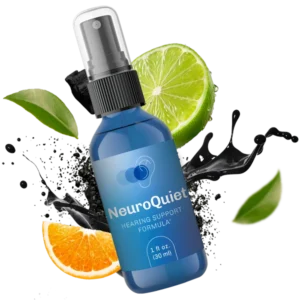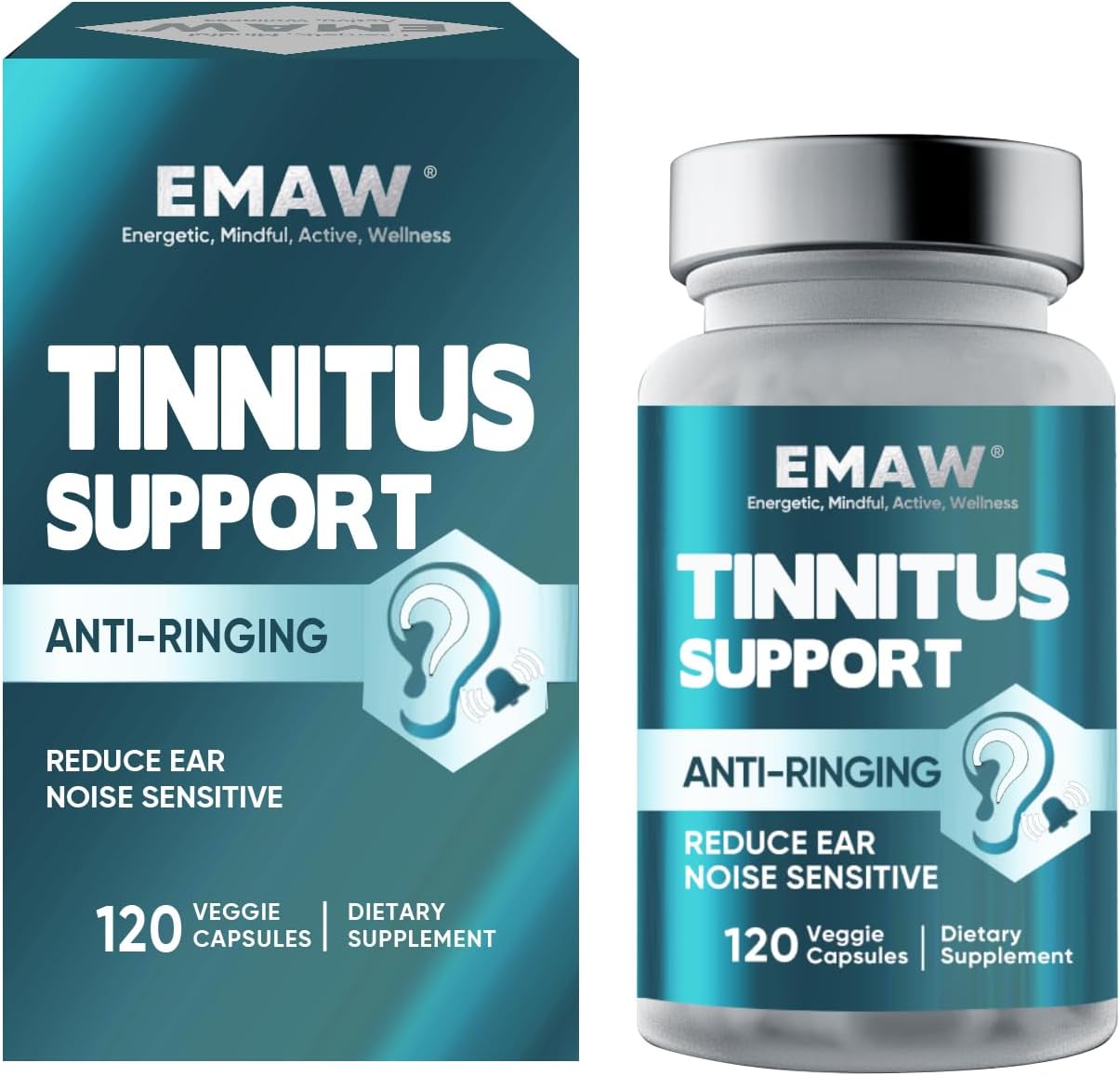Are you familiar with the persistent ringing or buzzing in your ears, a condition known as tinnitus? This phenomenon affects millions of people worldwide, causing frustration and disrupting daily life. Understanding the causes, symptoms, and available solutions is crucial for those seeking relief.

Tinnitus is not a disease but a symptom of an underlying issue, such as exposure to loud noise, certain medications, or ear health problems. The condition can manifest differently in different people, with sounds ranging from ringing to hissing or buzzing. Finding effective tinnitus relief often involves addressing the underlying cause.
Key Takeaways
- Understanding tinnitus is key to finding relief.
- Tinnitus is a symptom, not a disease, often related to ear health or hearing support issues.
- Various solutions are available, including treatments for underlying causes.
- Lifestyle changes can help alleviate the symptoms of ringing ears.
- Seeking professional help is crucial for effective tinnitus relief.
Understanding Tinnitus: More Than Just a Ringing Sound
The perception of tinnitus goes beyond the common understanding of it being just a ringing sound. It’s a complex condition that affects millions of people worldwide, manifesting in various ways and impacting lives in different degrees.
What Exactly is Tinnitus?
Tinnitus is characterized by the perception of noise or ringing in the ears when no external sound is present. It’s not a disease but a symptom that can result from a variety of underlying causes, including exposure to noise, certain medications, and some health conditions.
How Common is Tinnitus?
Tinnitus is more common than one might think. According to recent studies, approximately 1 in 5 people experience some form of tinnitus, with its prevalence increasing with age. It’s a significant concern for both the general public and healthcare professionals.
Types of Tinnitus Sounds People Experience
The sounds associated with tinnitus are not limited to ringing. People may experience a range of noises, including buzzing, hissing, whistling, or even music. The variety of sounds reflects the complexity of the condition and the different ways it can affect individuals.
The Science Behind Tinnitus: How and Why It Occurs
Delving into the science behind tinnitus reveals the various factors that contribute to its occurrence and persistence. Tinnitus is a complex condition that involves not just the ears, but also the brain’s interpretation of sound signals.
The Auditory System and Tinnitus
The auditory system, comprising the outer ear, eardrum, middle ear bones, and the cochlea, plays a crucial role in how tinnitus manifests. Damage to any part of this system can lead to the perception of ringing or other sounds. The cochlea, responsible for converting sound vibrations into electrical signals, is particularly significant in tinnitus.
Brain Involvement in Tinnitus Perception
The brain’s role in tinnitus is equally important, as it interprets the signals received from the auditory system. The brain can amplify or modify these signals, contributing to the tinnitus experience. Research suggests that changes in brain activity patterns are associated with tinnitus perception.
Objective vs. Subjective Tinnitus
Tinnitus can be categorized into objective and subjective types. Objective tinnitus is rare and can be heard by an observer, often due to a physical condition like a vascular malformation. Subjective tinnitus, the more common form, is perceived only by the individual experiencing it.
Temporary vs. Chronic Tinnitus
Tinnitus can also be classified based on its duration. Temporary tinnitus may result from exposure to loud noise, while chronic tinnitus persists over time, often requiring more comprehensive management strategies.
| Tinnitus Type | Characteristics | Common Causes |
|---|---|---|
| Objective Tinnitus | Can be heard by an observer | Vascular malformations, certain medical conditions |
| Subjective Tinnitus | Perceived only by the individual | Hearing loss, exposure to noise, age-related factors |
| Temporary Tinnitus | Short-term duration | Loud noise exposure, certain medications |
| Chronic Tinnitus | Long-term persistence | Underlying medical conditions, prolonged noise exposure |
Common Causes of Tinnitus
The onset of tinnitus can be attributed to a variety of factors, ranging from age-related hearing loss to exposure to loud noises. Understanding these causes is essential for managing the condition effectively.
Age-Related Hearing Loss
Age-related hearing loss, also known as presbycusis, is a common cause of tinnitus. As people age, their hearing ability declines, and they may start experiencing tinnitus symptoms. This type of hearing loss is often associated with a decrease in the ability to hear high-frequency sounds.
Noise Exposure and Damage
Exposure to loud noises, either acutely or chronically, can damage the hair cells in the inner ear, leading to tinnitus. This can happen due to working in noisy environments, attending loud concerts, or even listening to music at high volumes through earbuds.
Medical Conditions Associated with Tinnitus
Certain medical conditions can contribute to the development of tinnitus. These include earwax buildup, ear infections, and conditions like Meniere’s disease. Treating these underlying conditions can sometimes alleviate tinnitus symptoms.
Medications That Can Trigger Tinnitus
Some medications have been known to cause or exacerbate tinnitus. These include certain antibiotics, cancer medications, and even some antidepressants. It’s essential to discuss any medication-related concerns with a healthcare provider.
Stress and Tinnitus Connection
Stress is known to aggravate tinnitus symptoms. High levels of stress can make the perception of tinnitus worse, creating a cycle that’s challenging to break. Managing stress through relaxation techniques, such as meditation or yoga, can help mitigate tinnitus symptoms.
Recognizing Tinnitus Symptoms and Their Impact
The experience of tinnitus extends far beyond the auditory, affecting individuals in multiple ways. While the ringing or other sounds associated with tinnitus are the most noticeable symptoms, there are other physical and psychological effects to consider.
Physical Symptoms Beyond the Ringing
Beyond the characteristic sounds, individuals with tinnitus may experience a range of physical symptoms. These can include headaches, fatigue, and ear pressure. In some cases, tinnitus is accompanied by vertigo or dizziness, further complicating the physical experience.
Psychological Effects of Chronic Tinnitus
The psychological impact of tinnitus should not be underestimated. Chronic tinnitus can lead to anxiety, depression, and stress, significantly affecting an individual’s mental health. The constant perception of sound can be distressing, making it challenging to relax or focus.
How Tinnitus Affects Daily Life
Tinnitus can have a profound effect on daily life, influencing various aspects of an individual’s routine and interactions. From concentration problems to social withdrawal, the impact can be far-reaching. Simple tasks may become challenging, and the quality of life can be significantly reduced.
Tinnitus and Sleep Disturbances
One of the critical areas affected by tinnitus is sleep. The persistent sounds can make it difficult to fall asleep or stay asleep, leading to sleep disturbances. This, in turn, can exacerbate the physical and psychological symptoms, creating a cycle that is challenging to break.
Understanding the full scope of tinnitus symptoms is crucial for managing the condition effectively. By recognizing the physical, psychological, and daily life impacts, individuals can seek appropriate support and interventions.
Diagnosing Tinnitus: What to Expect at the Doctor
Understanding the diagnostic process for tinnitus can help individuals prepare for their doctor’s visit and subsequent treatment. When you visit a doctor for tinnitus, the goal is to determine the underlying cause and develop an effective treatment plan.
Initial Evaluation and Questions
The initial evaluation typically begins with a thorough medical history and questions about your tinnitus, such as when it started, how long it lasts, and any factors that make it better or worse. Your doctor may also ask about your hearing, any medications you’re taking, and your overall health.
Hearing Tests and Examinations
Hearing tests are a crucial part of diagnosing tinnitus. These may include pure-tone audiometry, speech audiometry, and tympanometry to assess your hearing and middle ear function. Your doctor may also examine your ears to check for any visible issues.
When to Seek Medical Attention
If you’re experiencing persistent or severe tinnitus, it’s essential to seek medical attention. Additionally, if you notice any of the following, you should consult your doctor: sudden hearing loss, dizziness, or significant changes in your tinnitus.
Ruling Out Serious Underlying Conditions
In some cases, tinnitus can be a symptom of an underlying condition that requires medical attention. Your doctor may perform tests to rule out conditions such as Meniere’s disease, temporomandibular joint (TMJ) disorders, or certain tumors.
| Test | Purpose | What to Expect |
|---|---|---|
| Pure-tone Audiometry | Assess hearing thresholds | You’ll listen to sounds of different frequencies and volumes, indicating when you hear them. |
| Speech Audiometry | Evaluate speech understanding | You’ll repeat words or sentences spoken at different volumes to assess your ability to understand speech. |
| Tympanometry | Check middle ear function | A device will be placed in your ear to vary air pressure and assess your eardrum’s movement. |
Conventional Treatments for Tinnitus Relief
For individuals suffering from tinnitus, several conventional treatment options are available to alleviate symptoms and improve quality of life. These treatments aim to reduce the perception of ringing or other sounds associated with tinnitus.
Sound Therapy Approaches
Sound therapy is a common approach to managing tinnitus. It involves exposure to specific sounds to help mask or reduce the perception of tinnitus. Sound therapy can be tailored to individual needs, using various types of sound, such as white noise or nature sounds, to provide relief.
Cognitive Behavioral Therapy
Cognitive Behavioral Therapy (CBT) is another effective treatment for tinnitus. CBT helps individuals change their perception of tinnitus and its impact on their daily lives. By addressing the emotional and psychological aspects of tinnitus, CBT can significantly improve a person’s ability to cope with the condition.
Hearing Aids and Masking Devices
Hearing aids and masking devices are also used in the management of tinnitus. Hearing aids can help improve hearing and reduce the perception of tinnitus by amplifying external sounds. Masking devices, on the other hand, produce sound that can help mask the ringing or other sounds associated with tinnitus.
Medications Used for Tinnitus Management
In some cases, medications may be prescribed to help manage tinnitus symptoms. While there is no specific medication approved solely for tinnitus, certain antidepressants and anti-anxiety medications can help alleviate the distress associated with tinnitus.
By exploring these conventional treatment options, individuals with tinnitus can find relief and improve their overall quality of life.
Natural and Alternative Solutions for Tinnitus
Many individuals with tinnitus are turning to natural and alternative therapies to find relief and improve their quality of life. While conventional treatments are available, some people prefer to explore complementary approaches to manage their symptoms.
Lifestyle Modifications That Help
Simple changes in daily habits can significantly impact tinnitus symptoms. Reducing stress through relaxation techniques, such as meditation or yoga, can help alleviate tinnitus discomfort. Additionally, avoiding loud environments and wearing protective earwear in noisy settings can prevent further damage.
Dietary Changes and Supplements
Certain dietary adjustments may also help manage tinnitus. Incorporating a balanced diet rich in antioxidants, found in foods like fruits and vegetables, can be beneficial. Some studies suggest that supplements like zinc and ginkgo biloba may also provide relief, although it’s essential to consult with a healthcare professional before adding any new supplements.
Stress Management Techniques
Stress can exacerbate tinnitus symptoms, making effective stress management crucial. Techniques such as cognitive behavioral therapy (CBT), mindfulness, and deep breathing exercises can help reduce stress levels and improve overall well-being.
Exercise and Its Impact on Tinnitus
Regular physical activity is another lifestyle modification that can positively impact tinnitus. Exercise not only reduces stress but also improves overall health, potentially reducing the severity of tinnitus symptoms. Activities like walking, swimming, or cycling can be particularly beneficial.
NeuroQuiet: A Comprehensive Approach to Auditory Health
NeuroQuiet is revolutionizing the way we approach tinnitus relief with its comprehensive formula. This dietary supplement is designed to not only alleviate the symptoms of tinnitus but also to support overall brain and ear health.
How NeuroQuiet Works for Tinnitus Relief
NeuroQuiet works by utilizing a blend of natural ingredients that target the root causes of tinnitus. By addressing issues such as inflammation and oxidative stress, NeuroQuiet helps to create a healthier environment for auditory function. This approach can lead to a reduction in the severity of tinnitus symptoms, improving the quality of life for those affected.
Key Natural Ingredients in NeuroQuiet
The effectiveness of NeuroQuiet lies in its carefully selected natural ingredients. Some of the key components include:
- Ginkgo Biloba: Known for its ability to improve blood circulation, which can help alleviate tinnitus symptoms.
- Zinc: Plays a crucial role in maintaining healthy hearing and reducing the risk of age-related hearing loss.
- Magnesium: Helps protect the hair cells in the ear from damage, thereby supporting auditory health.
Customer Reviews and Success Stories
Many individuals have experienced significant relief from tinnitus symptoms after incorporating NeuroQuiet into their daily routine. Customer reviews often highlight the positive impact on their overall well-being, with some noting a decrease in the ringing or buzzing sounds associated with tinnitus.
“Since starting NeuroQuiet, I’ve noticed a significant reduction in my tinnitus symptoms. It’s been a game-changer for my daily life.”
— Emily R., satisfied customer
How to Incorporate NeuroQuiet into Your Daily Routine
Incorporating NeuroQuiet into your daily routine is straightforward. Simply take the recommended dose as directed on the label. Consistency is key to experiencing the full benefits of NeuroQuiet.
NeuroQuiet’s Support for Brain and Ear Health
NeuroQuiet is not just about tinnitus relief; it’s also formulated to support overall brain and ear health. The ingredients work synergistically to nourish and protect these critical areas, promoting a healthier auditory system.
| Benefits | NeuroQuiet | Other Supplements |
|---|---|---|
| Tinnitus Relief | Targets root causes | May only mask symptoms |
| Natural Ingredients | Ginkgo Biloba, Zinc, Magnesium | Varies, often with less research |
| Brain and Ear Health | Specifically formulated to support | May not address overall health |
Conclusion: Taking Control of Your Tinnitus Journey
Understanding tinnitus is the first step towards finding relief and taking control of your auditory health. By recognizing the causes, symptoms, and various management options, you can embark on a journey towards a more manageable and peaceful life.
Tinnitus relief is achievable through a combination of conventional treatments, natural solutions, and lifestyle modifications. Exploring these options, such as sound therapy, cognitive behavioral therapy, and supplements like those found in NeuroQuiet, can significantly impact your tinnitus management.
Taking control of your tinnitus journey involves being proactive about your auditory health. By staying informed and working with healthcare professionals, you can develop a personalized plan to alleviate your symptoms and improve your quality of life.
Empowered with knowledge and a comprehensive approach, you can navigate your tinnitus journey with confidence, finding relief and reclaiming the serenity of sound.


